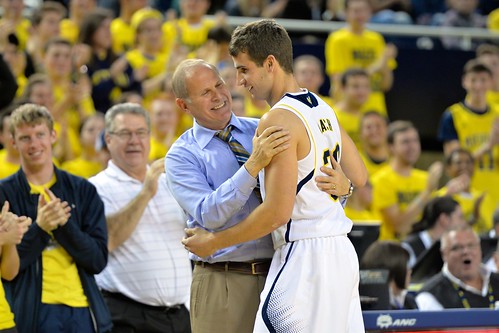 |
| Photo Credit: World Bank Photo Collection |
'What a total God shot!' Understand that? Then you speak Christianese by Patrick Cox (PRI.org)
"This religious dialect is spoken by increasing numbers of English-speaking Christians, especially evangelicals. And it isn't just deployed for Bible study. Everyday non-religious conversation is also sprinkled with words from the scriptures, and phrases popularized by charismatic preachers and writers. So for example, instead of "results," you might hear a Christianese speaker refer to "fruits." Instead of "thoughtful," "intentional." Christanese can also depart slightly from English grammar: "My friend spoke into my life." "I was called to move to Nicaragua." It's code, a useful way for believers to seek out like-minded people."Who Would Jesus Abort? Confessions of a “Christian” Abortion Doctor by Russell Moore
"The biggest hurdle, though, for Parker, is to redefine life itself. Like many in the abortion movement, Parker scoffs at the possibility of fetal personhood because the child is small, “no bigger, from crown to rump, than the first two digits of my pinkie finger,” and because the child cannot live, in most cases, on his or her own outside the womb. He seems to recognize though that lack of size and lack of power won’t be persuasive on their own, so he continues to what he sees as the real problem: the idea that life is “a miracle.” Parker writes that to say that “conception, or birth, or even death is ‘miraculous’ does an injustice to God.” Life is, instead, he argues, merely “a process.” As I read this abortion doctor’s repeated inveighing against the metaphor of “miracle” for human life, I could not help but be reminded of Wendell Berry’s manifesto against scientism and materialism, which he says demotes humanity from creature to machine. The rejection of the miracle of life, Berry wrote, leaves us with the coldness of abstraction."How Single Women Became an Unstoppable Force in Bible Translation by Kate Shellnutt (Christianity Today)
"Though women in Bible translation are well represented in the field, they remain underrepresented in leadership positions. In recent years, SIL has worked to bring more women into administrative leadership, believing that “God works through women and men of every ethnic group and age level, and calls them to be involved in leadership roles in all facets of our organizational life.” Women mostly feel free to focus on the work they were called to in the first place—getting more people access to the Bible in their own languages—but the pressure’s still there. Everyone on the mission field works hard and sacrifices much; women may notice themselves working extra hard to demonstrate their contributions."How Isiah Thomas became the greatest Detroit Piston ever by Bill Dow (Detroit Free Press)
"And then there was Isiah Lord Thomas III, the player whose impact turned around the once floundering franchise and laid the foundation for the construction of one of the premier arenas in basketball, especially for its time. Thomas blossomed into the Pistons' fearless leader during his career, cementing a legacy befitting of his middle name. During his 13-year career, he established himself as one of the greatest “small men” in NBA history. A dangerous shooter and spectacular playmaker, he still is the franchise’s all-time leader in points (18,822), assists (9,061), steals (1,861) and minutes played (35,516). The 12-time All-Star was inducted into the Naismith Memorial Basketball Hall of Fame in 2000 and was named to the NBA’s 50th Anniversary All-Time team. “Simply put, Isiah Thomas was the difference maker and the key to the franchise’s success,” says Tom Wilson, the former Pistons president and CEO and right-hand man to the late club owner Bill Davidson. Wilson was the project manager of the Palace and first suggested the pioneering concourse-level suites. The arena opened in 1988. “Internally," Wilson said, "we called the Palace 'The House that Isiah Built.' "That's My King Dr. S.M. Lockridge
In honor of the commemoration and celebration of the death, burial and resurrection of Jesus Christ that Christians around the worldwide recognize this weekend, here's a video that reminds us about the King of Kings.




